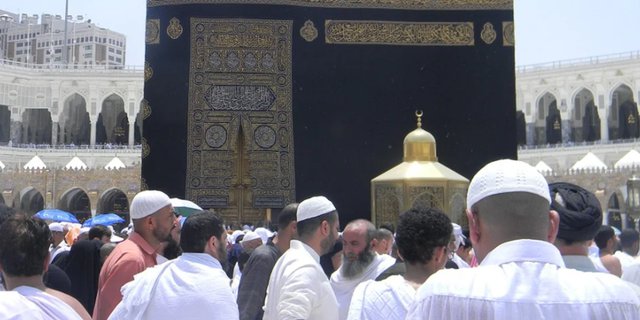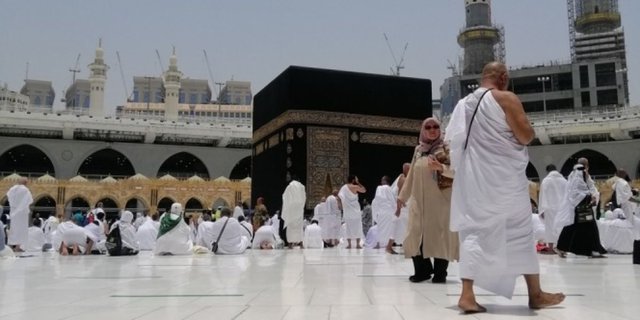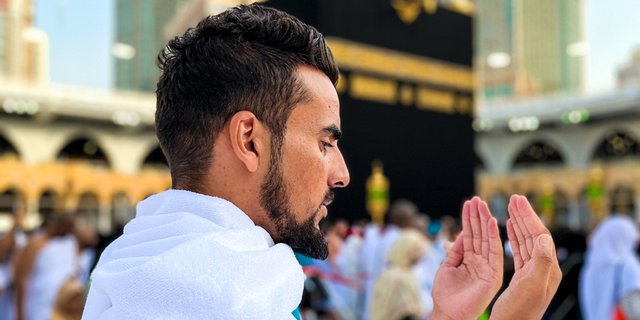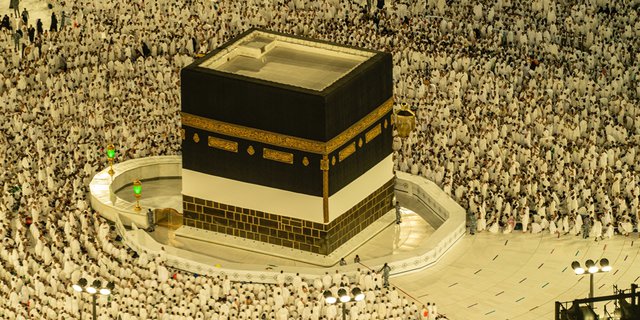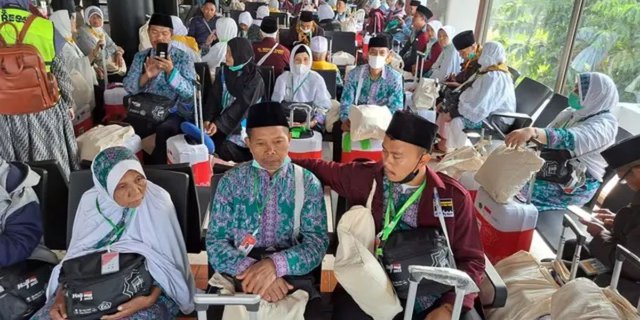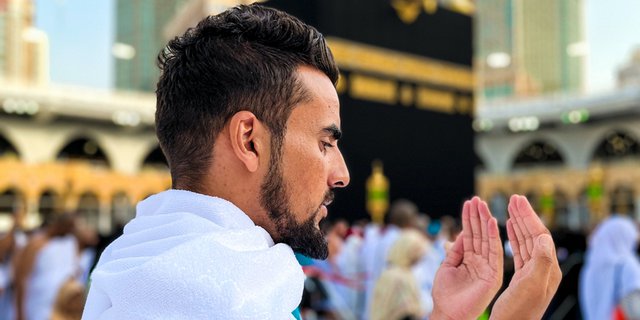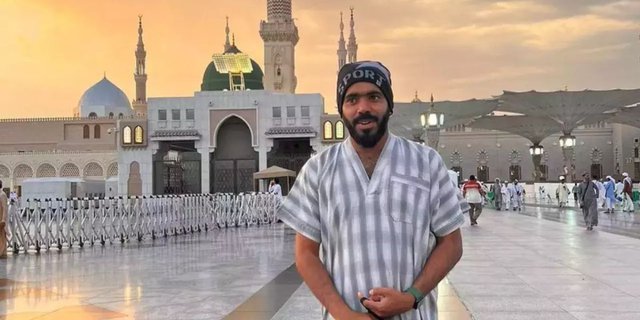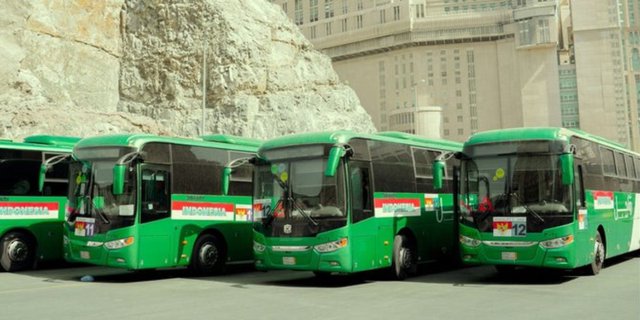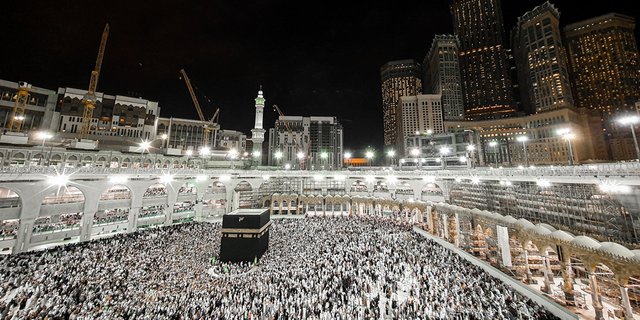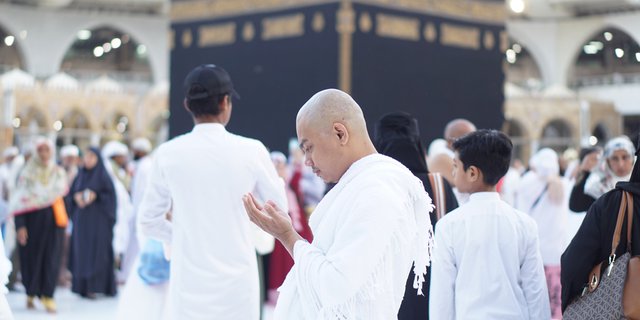Dream - Hajj is the fifth pillar of Islam that is obligatory for every Muslim who meets the requirements based on the Shariah.One of the requirements is the ability both financially and physically.Of course, Muslims want to perfect their Islam by performing the hajj worship.
When performing this long-awaited worship for every Muslim, one must understand the requirements, pillars, rituals of the hajj worship, and prohibitions.If there are pillars and requirements that are missed, then the hajj worship becomes invalid.
The hajj worship is a long spiritual journey that requires a lot of material and physical strength. The obligation to perform the hajj worship for Muslims is only once in a lifetime.Allah SWT says in the Quran, Surah Al Imran, verse 97:
"Hajj is [during] well-known months, so whoever has made Hajj obligatory upon himself therein [by entering the state of ihram], there is [to be for him] no sexual relations and no disobedience and no disputing during Hajj. And whatever good you do - Allah knows it. And take provisions, but indeed, the best provision is fear of Allah. So fear Me, O you of understanding."
Prospective hajj pilgrims must understand the meaning and regulations of the hajj worship. Read the complete information below about the meaning of hajj and all its regulations, compiled by Dream from various sources.
Understanding Hajj and the Story Behind It
Hajj is a word that comes from the Arabic word 'hajj' which means to visit or to go.Many interpret the word hajj as an annual Islamic pilgrimage.In Hebrew, the word hajj with the same sound means 'holiday'.
The semiotic root of the word hajj means to go around or to circle.In Jewish tradition, the bride will circle the groom during the wedding ceremony.While in Islamic teachings, the person who performs the hajj worship will circle the Kaaba, which is called tawaf.
The procedures for performing the worship followed by Muslims today are the regulations taught by Prophet Muhammad (SAW).However, it is written in the Quran that the hajj worship has been performed since the time of Prophet Ibrahim (AS).Allah commanded Prophet Ibrahim to leave his wife, Hajar, and his son, Ismail, in the desert.
Because she was left by her husband, Hajar was confused in finding water for Ismail. Then she tried to find water by running between the hills of Safa and Marwa. But she could not find a water source. Then Ismail scratched the ground and suddenly water sprang out beneath his feet.
After that incident, Prophet Ibrahim was commanded to build the Kaaba around that water source.This story is immortalized in the Quran, Surah Al-Baqarah, verses 124 to 127.
Then much later, precisely in 632 AD (the end of the 10th year of Hijri), Prophet Muhammad (SAW) made his final pilgrimage to the Kaaba with thousands of his followers.He taught the procedures for performing the hajj worship.From this point on, the hajj worship was established as one of the pillars of Islam.
Requirements for the Obligatory Hajj Worship
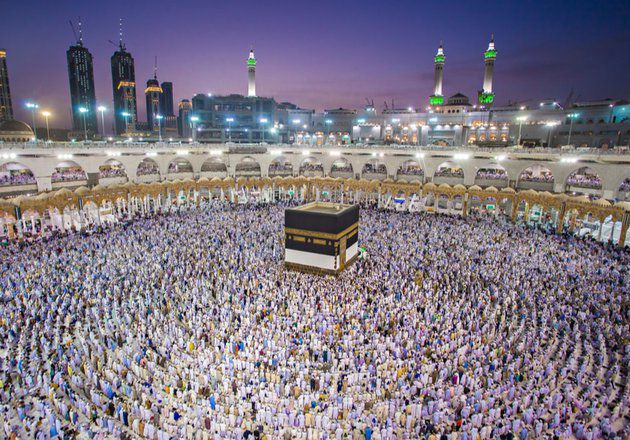
It is known that hajj is the fifth pillar of Islam that holds a lot of history behind it. In addition to being a worship, performing the hajj pilgrimage also serves as a reminder for Muslims that Islam is a very noble religion.
If one intends to perform it, Muslims must first understand its obligatory requirements. Muslims must meet the obligatory requirements for hajj, namely:
- Being a Muslim.
- Being of sound mind.
- Being physically and mentally healthy. Being healthy and strong to perform the hajj worship, understanding the hajj rituals, and having the mental readiness because the hajj worship is performed for several days.
- Having reached the age of maturity.
- Being free, not a slave.
- Being physically, mentally, and financially capable. The hajj journey requires expensive costs. If someone sells their only source of livelihood, it is not allowed because it will bring many harms to them and their families. Not only that, someone who wants to perform the hajj worship must also prepare living expenses for the family they leave behind at home.
Pillars and Obligations of Hajj
Furthermore, prospective hajj pilgrims also need to know the pillars and obligations of hajj. Pillars are things that must be present when doing something. The hajj worship is not valid if one leaves out one of the pillars. However, if what is left out is part of the obligatory hajj, then the hajj is still valid but one must pay a fine or penalty.
Here are some of the pillars of hajj that must be present during the hajj worship:
- Ihram
- Standing at Arafah
- Tawaf around the Kaaba
- Sa'i or walking briskly between Safa and Marwa.
- Tahalul
- Tartib
Meanwhile, the obligatory acts of hajj are:
- Entering ihram from the miqat,
- Staying overnight in Muzdalifah,
- Staying overnight in Mina,
- Stoning the pillars,
- Avoiding forbidden acts during ihram, as it requires paying a fine or penalty.
Miqat Zamani and Miqat Makani
Miqat means boundary, consisting of miqat zamani which means boundary of time, and also miqat makani which means boundary of place. Miqat Zamani is from the start of the Hajj month (Shawwal, Dhu al-Qi'dah, and Dhu al-Hijjah) from the 1st of Shawwal until the 9th of Dhu al-Hijjah.
Thus, the hajj is not valid if one enters ihram before or after this time. The period between the 1st of Shawwal and the 9th of Dhu al-Hijjah is the time to start or intend to perform the hajj, not to actually perform the hajj.
When a Muslim starts ihram from the 1st of Shawwal, then all the prohibitions of hajj apply to them until they perform tahallul on the 9th of Dhu al-Hijjah or approximately for 70 days.
Meanwhile, Miqat Makani is the boundary of place. For the residents of Mecca, their miqat is their own homes, and for those outside Mecca:
- For those coming from the direction of Medina, their miqat is Dhu'l-Hulayfah,
- For those coming from the direction of Syria, Egypt, and Africa, their miqat is Juhfah,
- For those coming from the direction of Yemen, their miqat is Yalamlam and Qarn al-Manazil,
- For those coming from the east of the city of Mecca, their miqat is Dhatu 'Iroq.
Types of Hajj Worship
The procedure for performing the Hajj relates to the types of Hajj performed and the time of its implementation. There are three types of Hajj, namely Hajj Ifrad, Qiran, and Tamattu.
1. Hajj Ifrad
Hajj Ifrad is Hajj performed by performing Hajj first, then performing Umrah. The term Ifrad means separating something that is joined into separate parts.
A person who performs Hajj Ifrad will complete the Hajj first. After completing all the rituals of Hajj, then he will perform Umrah. A person who performs Hajj Ifrad is called Mufrid.
2. Hajj Qiran
Hajj Qiran is Hajj performed by combining the intention of Hajj and Umrah at the same time. Both of these rituals are performed during the Hajj months.
It means that Hajj and Umrah are performed in the state of ihram. This type of Hajj requires a sacrificial animal to fulfill its pillars. A person who performs Hajj Qiran is called Qaarin.
3. Hajj Tamattu
Hajj Tamattu is the most common Hajj ritual and is recommended by the Prophet Muhammad SAW to be performed by his companions.
In this type of Hajj, Umrah is performed during the Hajj season, then Hajj is performed between the 8th and 13th of Dhu al-Hijjah. A person who performs Umrah and Hajj must be in a separate state of ihram. To fulfill it, a person needs to sacrifice a sacrificial animal as compensation. A person who performs Hajj Tamattu is called Muttamatti.
People Obligated to Perform Hajj
A person who is obligated to perform Hajj is someone who is physically, financially, and mentally capable. In addition, a person who is obligated to perform Hajj is someone who meets the following criteria:
1. Muslim
A person who is obligated to perform Hajj is someone who is a Muslim. People of other religions are not obligated to perform the Hajj.
2. Reached Puberty
A person must have reached the age of puberty or adulthood before being obligated to perform Hajj. The age of puberty differs between males and females, generally after wet dreams (for males) and after experiencing menstruation (for females). In addition, it can be said that someone has reached puberty if they are mumayyiz or able to distinguish right from wrong.
3. Mentally Sound
A person who is obligated to perform Hajj is someone who is mentally sound, able to understand the meaning and consequences of the Hajj ritual. Because there are many things that need to be understood during the process of performing Hajj. Therefore, it is necessary to have good health to digest all the knowledge provided by the hajj organizing institution.
4. Free
Only those who are free or not in a state of slavery or captivity are obligated to perform Hajj.
5. Financially Capable
An individual must have adequate financial ability to travel for Hajj and meet the needs during their stay in Mecca, including transportation costs, accommodation, and living expenses during the Hajj period.
6. Physically Strong
Hajj requires physical strength. A series of Hajj rituals must be performed by every pilgrim starting from the requirements, pillars, and obligatory acts of Hajj. Therefore, it is important for Hajj pilgrims to have strong physical endurance to be able to undergo all the processes perfectly. Although there are special companions for elderly pilgrims who are unable to walk, they still need to have physical strength to sit in a wheelchair for a long time.
If a Muslim fulfills all the above conditions, then they are obligated to perform Hajj at least once in their lifetime. However, it is important to remember that physical health must also be considered, and individuals must be able to undertake long journeys and face the physical challenges associated with the Hajj ritual.
Therefore, it is important for Hajj pilgrims to have strong physical health in order to be able to undergo all the processes perfectly. Although there are special companions for elderly pilgrims who are unable to walk, the pilgrims still need to have strong physical health to sit in a wheelchair for a long time.
If a Muslim fulfills all the above requirements, then it is obligatory for them to perform Hajj at least once in their lifetime. However, it is important to remember that physical health should also be considered, and individuals should be able to undertake long journeys and face physical challenges related to the Hajj pilgrimage.
Disclaimer: This translation from Bahasa Indonesia to English has been generated by Artificial Intelligence.
